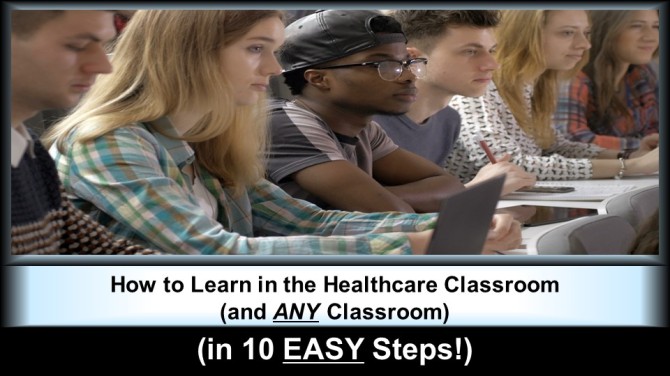Taking online courses sounds like a great idea at first glance. There’s no need to go to a physical location, you can study and complete your work when it’s convenient for you, and the courses are by and large less expensive than traditional courses are. The problem many students realize is that study time becomes even more important when there’s no class time.
That’s why it’s important to minimize all possible distractions so you can get the most out of your study time.
How to Minimize Distractions During Your Study Time
In order to avoid distractions you need to have answers to all of the basic questions before you sit down to work. Who, What, When, Where, How (we know why you’re studying, so you get that answer for free).
– Who: Are you studying alone, or with someone else? Some students work best in solitude, while others work well with someone to keep them on task.
– What: What are you studying? Pick a given thing to study in a session and study that. Maybe it’s a review of chapters 1-3, or just a discussion of the last lesson, but you need to know what you’re studying in order to stay focused.
– When: Different times of day come with different distractions. Late night studying is ideal for some students because it means there’s quiet and roommates or children are asleep. Early mornings might be better, particularly if there are fewer demands on your attention. Once you’ve selected a time make sure you stick to it as best as possible, and inform people who might need to get hold of you that you’re not to be interrupted during this time if it isn’t an emergency.
– Where: Your location is a prime consideration when it comes to distractions. Studying in a familiar place like your bedroom might sound like a good idea but are you surrounded by too many distractions? Your TV with recorded episodes of your favorite show, friends and family stopping by to chat, and worst of all your bed constantly tempting you with a nap. Often it’s a good idea to pick a location where you have nothing else to focus on, such as the library. If leaving home isn’t an option then picking a spot like the basement or the kitchen where there are fewer distractions is a smart idea.
– How: Different people learn in different ways, and it’s important to know how you learn best before you start studying. If you’re the kind of student who can just crack open a book and read that’s great, but if that approach is going to bore you then you’re going to fade quickly and your attention is going to wander. Do you need a video that shows you examples of what you’re studying to focus? Do you need silence or loud music to concentrate? Do you need to take breaks every 20 minutes or so, or are you the sort of student who if you lose your momentum will never get it back? You need to know what works best for you before you get set up.
Tips For Distraction Minimization
If you have answers to the above questions then you have the broad strokes of what you need to do to avoid distractions while you study. There are some specific things that can help if you find your attention wandering though.
– Turn Off Your Communicators: Studying is hard enough without people trying to get hold of you. As such you should close any chat or social media programs you have going that aren’t necessary, and you should turn off notifications on your phone. Leave text or the ringer on, but ignore the rest until you’re done.
– Shut Your Doors: An open door is an invitation to poke one’s head in and see what’s going on. Whether the doors are real (like your bedroom door) or metaphorical (your computer’s connection to the Internet) keep them closed until you’re done.
– Study in Small Doses: It’s a lot easier to study for half an hour or forty minutes a night for a week than it is to study for two hours a night for two days before a test. Your attention is less likely to wander if you just need to take a bite than if you try to eat the whole horse at once.
If you need more tips for making the most of your study time then contact us today!

For more information on the healthcare, follow the Avidity Medical Design Blog. To learn more about our online courses, visit Avidity Medical Design Academy. Enroll in the course entitled, “How to Learn in the Healthcare Classroom (and ANY Classroom) (in 10 EASY Steps!)” offered by Avidity Medical Design Academy. To purchase scented candles and soaps inspired by healthcare, visit Avidity Medical SCENTations.